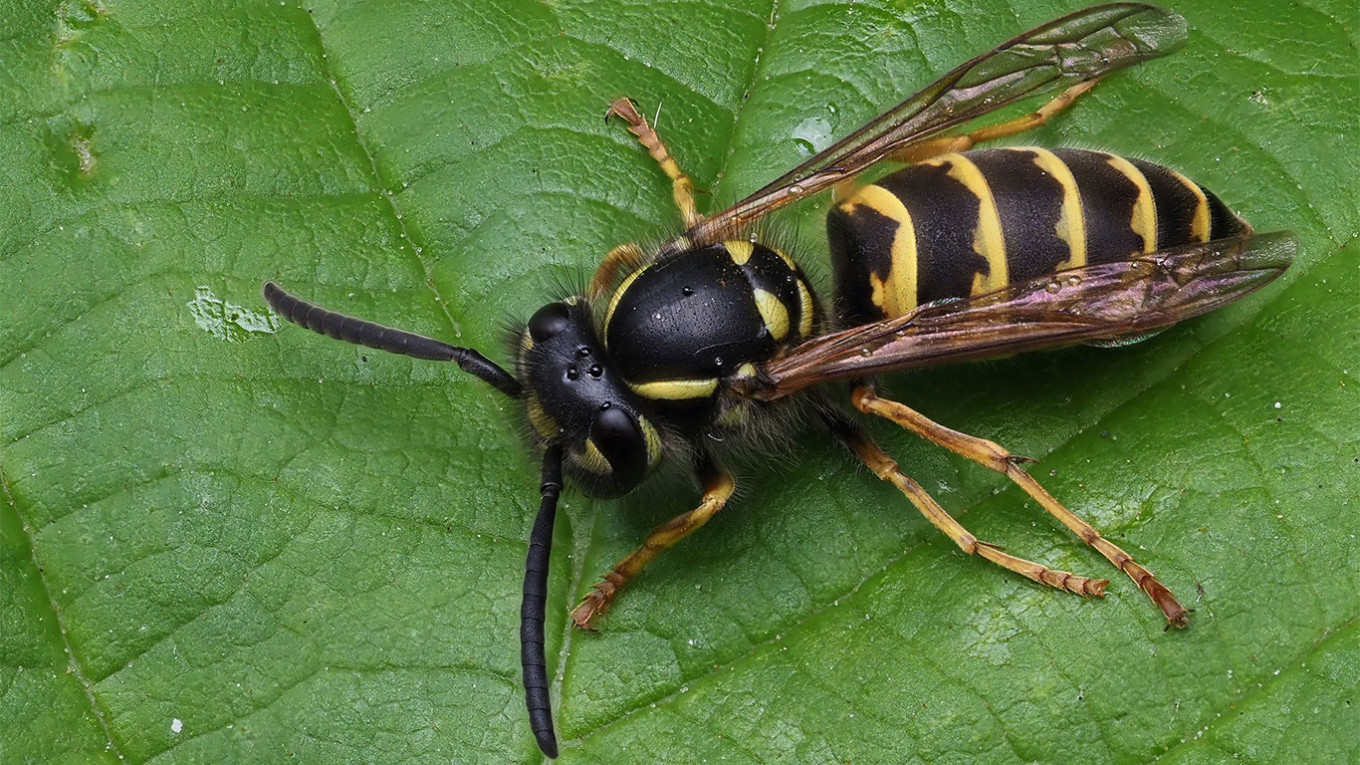Russian biologists have discovered microplastics in the intestines of common wasps, with its concentration increasing since 2019, Tomsk State University said Wednesday.
“In contrast to well-studied marine and freshwater ecosystems, the occurrence of microplastics in terrestrial ecosystems remains virtually unchecked," said Anastasia Simakova, head of the invertebrate department at Tomsk State University’s Biological Institute.
“Preliminary estimates show that the amount of microplastics in terrestrial environments may be several times greater than in freshwater reservoirs and oceans."
Researchers said they chose the common wasp for their study due to its widespread presence across nearly every continent, rapid reproduction rate, high biomass productivity and varied diet.
The study’s authors collected 167 wasps around the village of Kireevsk in western Siberia’s Tomsk region from 2012 to 2021.
They found that microplastics — including fragments and fibers of various colors and sizes — were present in all individuals examined throughout the study, with an increase in concentrations measured since 2019.
Researchers linked the increase in microplastics in wasp organisms in recent years to the rising production and consumption of synthetic textiles.
A growing share of fragments smaller than 0.05 millimeters may indicate that microplastics gradually degrade into even smaller components called nanoplastics, they added.
The accumulation of microplastics in living organisms poses risks of long-term toxic effects, the study authors warned.
These particles may also serve as a breeding ground for potentially pathogenic microorganisms or antibiotic-resistant bacteria, raising concerns about their adverse impacts on biodiversity and ecosystems.
The biologists’ research was published in the Russian Entomological Journal.
A Message from The Moscow Times:
Dear readers,
We are facing unprecedented challenges. Russia's Prosecutor General's Office has designated The Moscow Times as an "undesirable" organization, criminalizing our work and putting our staff at risk of prosecution. This follows our earlier unjust labeling as a "foreign agent."
These actions are direct attempts to silence independent journalism in Russia. The authorities claim our work "discredits the decisions of the Russian leadership." We see things differently: we strive to provide accurate, unbiased reporting on Russia.
We, the journalists of The Moscow Times, refuse to be silenced. But to continue our work, we need your help.
Your support, no matter how small, makes a world of difference. If you can, please support us monthly starting from just $2. It's quick to set up, and every contribution makes a significant impact.
By supporting The Moscow Times, you're defending open, independent journalism in the face of repression. Thank you for standing with us.
Remind me later.






